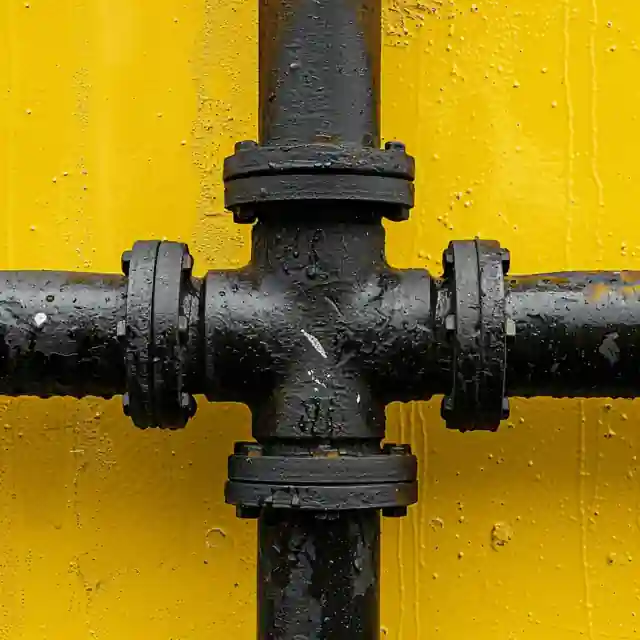
How to Become a Gas Installation Engineer: What You Need to Know
Confused about the difference between a heating engineer and a gas installation engineer? Don’t worry, you’re not alone. While some professionals can do both jobs, it’s crucial to understand the distinctions between them.
Navigating the world of heating and gas can be complex, but SeekaServ has you covered! Discover the essential responsibilities of a gas service engineer and get a better understanding of the industry.
What is a Gas Installation Engineer?
A gas installation engineer is a professional trained to install, repair, and perform maintenance on gas-fueled appliances. They might start their day installing a new gas appliance in a customer’s home and then check for gas leaks in a public building.
An engineer might work only in residential and commercial buildings or pursue employment with a large government organisation. Training as a gas and heating engineer opens up many exciting and well-paying career opportunities.
Gas Installation Engineer vs. Boiler Engineer
A boiler engineer is a heating engineer qualified to work on boiler systems. Both professionals must earn and maintain certification with Gas Safe Register, the authority that oversees all gas businesses in the U.K..
Even a boiler engineer with Gas Safe Register certification may not be qualified to perform every type of service a gas installation engineer is trained to perform. In this industry, professionals must register for each type of gas product they are licensed to work on.
Because gas is their specialty, a gas engineer is more likely to be qualified for a larger number of gas products than a boiler engineer. Likewise, a boiler engineer will be qualified to work with more boiler-type products than a gas engineer, though both have similar skills.
What Do Gas Engineers Do?
With so many specialisations in the field, each gas engineer’s role can seem unique. However, all gas engineers are trained to service, install, repair, and maintain gas appliances, whether it’s a domestic gas cooker or an industrial heating system. Some of the more typical tasks include:
- Providing quotes and answering customer questions
- Safety testing and evaluating gas appliances
- Pipework, cutting, bending, and fitting pipes for installation
- Diagnosing heating systems
- Repairing, installing, and servicing a variety of gas-powered appliances
What do gas engineers do? A better question may be, what don’t they do? To perform their typical daily tasks, gas installation engineers must also:
- Provide great customer service
- Be skilled at time management
- Solve problems
- Update their training and certifications regularly
- Complete what they start
- Find creative solutions
- Have good maths skills
Gas engineers combine their individual talents with comprehensive industry knowledge to ensure communities remain safe, warm, and efficiently serviced.
How Much Do Gas Engineers Make in the U.K.?
According to Indeed UK, the average salary for gas engineers is approximately £39,000 per year. However, the precise figure can vary based on numerous factors. These include your qualifications, certifications, availability, and whether you’re self-employed or on a company payroll. Furthermore, your location within the UK can influence your earnings. For instance, in London, gas engineers typically earn an average of just over £43,000 annually, whereas in Nottingham, the figure is closer to £38,000.
How to Become a Gas Engineer in the U.K.
Are you considering training to be a gas engineer? While the pathway to becoming a gas heating engineer might initially appear complex, rest assured that all aspirants tread a common foundational route. Depending on your chosen specialisation, many qualifications and certifications are available to enhance your expertise.
Education
When most people think of becoming a gas installation engineer, they worry about not having the right education. There are no specific educational requirements needed to train as a gas engineer.
However, a minimum of four GCSEs graded A to C are recommended if you wish to apply to an apprenticeship programme. These GCSEs should include maths, English, and two relevant subjects, such as science, design, or engineering.
If you plan on training through a fast track managed learning programme, no prior experience or related education is needed. However, having a good grasp of maths and the ability to communicate with various people is part of the job.
Apprenticeship
A traditional way to earn gas and heating engineer qualifications is through an apprenticeship. This offers hands-on, paid training while working under the supervision of an experienced, licensed professional.
Apprentices develop their industry knowledge and learn how to perform the tasks expected of a gas installation engineer. These apprenticeships typically last two to three years. At completion, apprentices may take advantage of job placement assistance or prepare to launch their careers as private contractors.
Qualifications and Certifications
All heating engineers must qualify to earn and maintain an Accredited Certification Scheme (ASC). Depending on your focus, there may also be other gas engineer qualifications and certifications to earn.
For example, the National Vocational Qualification (NVQ) is given to gas engineers who complete specific courses. The Domestic Gas Safety Certification, or CCN1, is awarded to gas installation engineers who have completed training in domestic gas safety.
The ASC, NVQ, and CCN1 are qualifications that allow a heating engineer to enter the Gas Safe Register.
Finding Work
A clear understanding of a gas engineer’s job description is pivotal when considering a career in this vital sector. After training, especially through apprenticeships, you may be offered automatic job placement. Otherwise, the process for finding work is similar to other industries.
Search industry-specific job boards and utilise the connections you’ve made during your training. Once you’ve met the necessary qualifications, you can establish your own private contractor business. SeekaServ allows contractors across various sectors to engage with customers who need their services.
Find Work as a Gas Installation Engineer Through SeekaServ
Joining the SeekaServ community opens the door to many opportunities in the UK’s thriving gas engineering sector. With a rising demand for qualified engineers across London and beyond, our platform ensures you’re at the forefront, meeting customers’ needs efficiently.
Customers seeking gas installation and boiler repair from London-based engineers rely on SeekaServ to connect with trusted professionals. If you’re ready to become a service provider, our platform makes finding work and building your customer base easy.
After completing your registration and professional profile, you can connect with people in your area who are actively seeking the help of a gas installation engineer. Contractors retain total control over their schedule and pricing. Whether you’re a seasoned engineer or a newcomer, SeekaServ offers unparalleled support, helping you easily navigate the industry landscape. Dive in and elevate your professional journey. Contact SeekaServ today to learn more about the benefits of membership.




